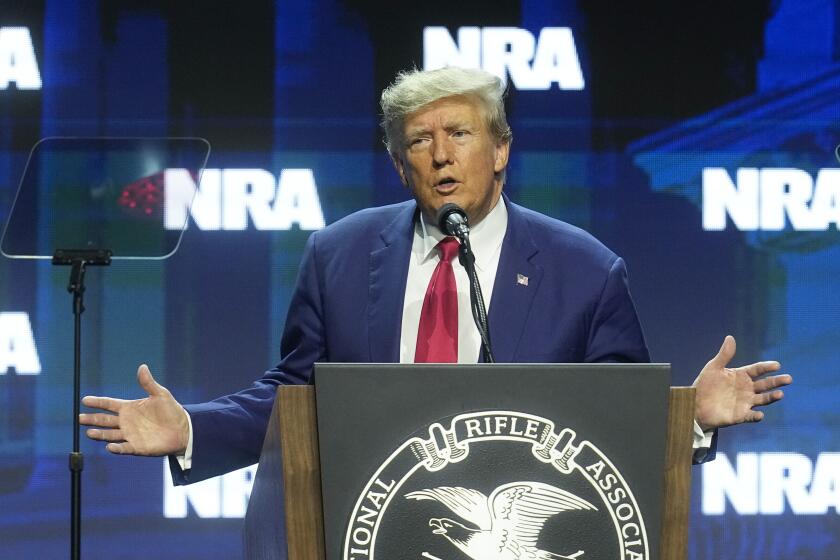Readers React: If the founders were originalists, they wouldn’t have allowed amendments
To the editor: The late Supreme Court Justice Antonin Scalia is best known for his espousal of “originalism,” generally thought of as the idea that the meaning of the Constitution is fixed forever to what it meant at the time it was written. (“Antonin Scalia and the judgment of history,” Opinion, Feb. 22)
It is worth noting that if the founders were originalists like Scalia, it is unlikely that they would have included Article V in their document, describing how the Constitution might be amended when, in James Madison’s own words, “useful alterations will be suggested by experience.”
Donald Schwartz, Los Angeles
..
To the editor: The left denigrates Scalia because of his conservative decisions such as the one in Citizens United, wherein the majority of justices ruled that corporations, and not just real people, have constitutional rights. Let’s think about what could happen if he had sided with the progressive justices.
Government could possibly confiscate corporate property without due process of law; it might also be able to more easily censor corporate-owned newspapers such as The Times. Perhaps even the Roman Catholic Church could face greater restrictions, because it is a religious organization and not a real person.
Luckily, Scalia understood that corporations (and organizations) are just an extension of individuals. He also understood the importance of protecting our constitutional rights, even if it meant deciding one particular case contrary to how many (even the majority of Americans) would want it to turn out.
Scalia was a brilliant jurist, and America would be a far better place if we had more justices like him.
P.J. Gendell, Beverly Hills
..
To the editor: This op-ed article focuses on Scalia’s emphasis on originalism and the historical effect of his term. It also mentions that in the Citizens United decision he insisted that the founders considered the free speech rights of corporations as well as citizens to be protected even though corporations barely existed at the time.
English grammar rules dictate that the pronoun “who” applies to people, while “that” refers to things. Even our language does not consider corporations to be people.
How’s that for true originalism?
Betty C. Duckman, Long Beach
Follow the Opinion section on Twitter @latimesopinion and Facebook
More to Read
A cure for the common opinion
Get thought-provoking perspectives with our weekly newsletter.
You may occasionally receive promotional content from the Los Angeles Times.










